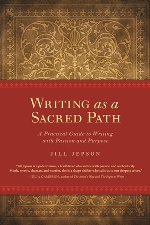
If you are an author, you are an authority. If you expect people to come to your website, read your essays, buy your books, or pay the slightest attention to anything you write, you must become an authority and write like one. This includes you, fiction writers. You may feel like you don’t have to worry about authority, since you’re writing made-up stuff, but that’s all the more reason.
Being an authority means readers feel reasonably sure you they can take what you write seriously, and that you are not pulling the wool over their eyes. Writing without authority is deadly. Nothing will send a reader packing faster.
How do you write with authority when you’re just, you know, ordinary ol’ you? It takes work—but it is doable no matter who you are.
Do research.
Why did readers flock to Donna Tartt’s The Goldfinch? For a lot of reasons, but partly because she writes like she knows what she’s talking about. Tartt researched furniture repair, art history, the antique market, the art underworld, recreational drugs, the life of well-to-do preppy students, and casinos. She spent time in each of the settings of her book—Manhattan, Las Vegas, and Amsterdam. She studied up on sports betting even though she admittedly hates sports. When she writes about Theodore Decker’s antique forgeries and drug use, you believe her.
Anthony Doerr’s All the Light We Cannot See is another example. To write his exquisite best-seller, Doerr had to learn about blindness, locks, minerals, radios, the geography of France and Germany, and the details of everyday life before and during World War II. While his characters are rich and beautifully drawn, without the historical, cultural, and scientific details surrounding them, readers wouldn’t have have been drawn so fully into their lives.
Get my free weekly strategies for writers. [simple_contact_form]
Avoid factual inaccuracies.
This is really a corollary of # 1, but I’m giving it its own special slot because it’s so important—and so often overlooked.
In recent weeks, I’ve read works by aspiring authors that located the source of the Mississippi River in Manitoba, said that Bill Gates invented the computer, and referred to Roman Catholics as non-Christians. All three were in creative nonfiction, so I imagine the writers were thinking that, since the focus was on their personal experience, they didn’t have to check their facts.
These days, there’s no excuse. It takes less than 30 seconds to do a Google search for source of the Mississippi, history of the computer, and Are Catholics Christians? I don’t even mean 30 seconds each: I mean it literally takes less than 30 seconds to get answers to all three questions.
Check your facts. Check them again. And yes, check them a third time. The first time the reader says, Wait a minute: Mumbai isn’t the capital of India, you’ve lost her.
When you don’t know something, admit it.
What if you can’t find the statistic you need? Or you find nine sources with different answers? Even in this day of easy-access information, there are times when you simply can’t get reliable data. There’s an easy solution to this dilemma: Admit it.
I learned long ago that I should never, ever try to fake it when a student asks a question I don’t know the answer to. And why should I? My students know I’m smart, and the goal of my teaching isn’t to somehow convince them I’m infallibly knowledgeable. They deserve honesty. When I get a question like, So how many people speak Amharic these days? I tell the truth: Got me. I usually throw the question out to the class (and surprisingly, I often have students who know some very esoteric facts). If no one knows the answer, I say we should all look it up and talk about it the next session.
You can do a similar thing in your writing:
There are no reliable statistics on how many people like pineapple on their pizza.
Estimates vary about how many women regret not having more cats.
Or simply: I haven’t been able to find out who threw the overalls in Mrs. Murphy’s chowder.
You can even turn your lack of knowledge into a call to action. Anyone know the answer? Leave a comment!
Write With Confidence
I think
I believe
In my opinion
From my viewpoint
Leave these weak, self-doubting phrases out. Your reader knows you’re writing from your own viewpoint: It’s the only viewpoint you can write from. Don’t be defensive. Don’t say, I realize I’m not an expert, but… Leave out excuses for not having better information. Instead, get the best information you can.
Doing research, checking your facts, admitting what you don’t know, and eliminating self-doubting phrases are all great ways to increase your authority on the page, but they have an additional benefit. They make you more self-confident about your writing. When you know you’ve done your best to provide accurate, thorough information and when you write with openness about the gaps in your knowledge, you come to the page with a sense of security and poise that will feel good–and will show in your writing.
Do you have other ways to increase your authority on the page? Do you have examples of writers that come across with great authority–or fall short? Share your ideas and examples here.